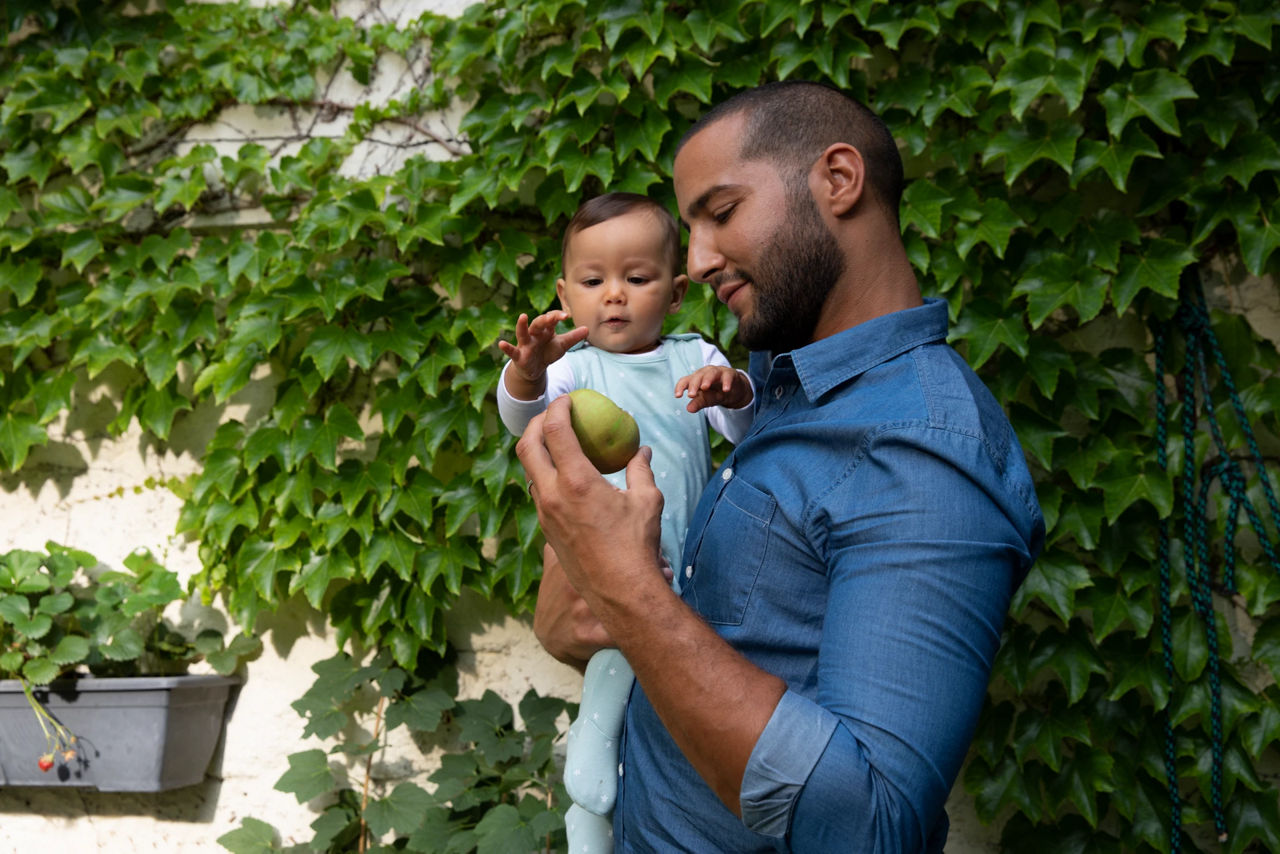Weaning your baby is an exciting time, but it’s not without its challenges. Switching from breast milk or infant formula to solids is a big change. So whether your baby is gagging on lumpy foods or refusing to eat anything new, find out how to solve the most common weaning issues.
Weaning problems solved
Challenging times
Common weaning concerns and solutions

Why does my baby keep spitting out food?
When your baby is young, they will have a reflex to thrust their tongue out every time the back of their throat is stimulated. This is known as the ‘tongue-thrust reflex’ and it will diminish as your baby gets older. Try not to worry if your baby spits back food – this is a common weaning problem. It may not be because they dislike the food, but because they are still learning to eat. Make a few attempts, but if they are still struggling to swallow the food, it may be because they’re not ready to start weaning, so leave it for a week or two and then try again1.
Why does my baby refuse certain foods?
If your baby pulls a face and refuses a certain food on a first attempt, it's more than likely they are surprised. This is a new experience, after all. Chances are your baby will forget and may respond differently next time they taste the same food. Perseverance is the key to this particular weaning issue. It can take eight to ten attempts for your baby to accept certain foods or tastes, so give them plenty of chances to try again.
If everything else fails, go back to the basics for a few days – vegetables that have a mild flavor, such as parsnips, sweet potato and carrots – or purée fruits to tempt their taste buds.
 At around 8–10 months your baby may begin to refuse spoon feeding, but this is an important milestone as they start to assert their independence
At around 8–10 months your baby may begin to refuse spoon feeding, but this is an important milestone as they start to assert their independence
Why doesn’t my baby like finger foods?
Experts advise introducing finger foods from 6 months onwards, when your baby's hand–eye coordination is more developed and they are able to pick up food and put it into their mouth independently.
Start with soft finger foods, such as slices of banana or avocado, and gradually introduce firmer textures as your baby seems ready. Pieces should be about the same size as your little finger so that your baby can grasp them well.
Initially, your baby will only eat a small amount of these foods, as they will still be getting most of their nutrition from breast milk or infant formula. This isn’t a problem – just continue offering finger foods as part of the weaning process, and sit together as a family at mealtimes to encourage them. Your baby learns through copying, so if they see you eating finger food, they are likely to follow suit.
Should I worry if my baby gags on solids?
Gagging is a normal reflex that prevents your baby from choking, so if it happens, try not to panic. Check to see you are not putting too much food on their spoon, or if they are putting the spoon too far into their mouth.
Sometimes babies struggle with the transition from smooth purées to lumpier textures. It may take some time for your baby to get used to lumpier foods, so introduce them slowly to help avoid this weaning issue. Move from a smooth purée to mashed foods with small lumps and then on to larger lumps. Experimenting with new and varied textures early on in your baby’s development is less likely to lead to food refusal as weaning progresses.
If your baby does gag, try not to overreact or lift them out of their highchair. Use lots of reassuring words and comforting body language. Mums often mistake gagging for choking, when in fact the likelihood of choking is very small. If you are concerned, talk to your doctor or healthcare professional, who will tell you what signs to look out for and when to administer first aid.
Eating slowly is a good habit to encourage as it helps your baby enjoy their food and prevents them from overeating.
Why isn’t my baby eating anything?
In the first few weeks of weaning all you can expect is for your baby to take a small amount of food from the tip of a spoon. At this stage, it's more about getting your baby used to the feel of food in their mouth.
As they grow, your baby’s food intake should increase, but bear in mind a baby’s stomach is much smaller than an adult’s. At 3 months it is approximately 10 times smaller than an adult’s and by 1 year, around 4 times smaller. Their portions should reflect this difference.
Remember, your baby will still be getting most of their nutrients from breast milk or infant formula. As long as they continue growing and putting on weight, there’s no need to worry.
Offer a variety of foods, of different tastes and textures, and avoid showing frustration if your baby refuses foods or only eats small amounts. They will gradually increase their food intake over time. If you are feeling concerned speak to your health visitor for reassurance and advice.
Why is my baby refusing to be spoon-fed?
Between 8 and 10 months, your baby may begin to refuse being fed by a spoon. This is around the age where babies become more aware of themselves. Asserting their independence by refusing a spoon is, in fact, another milestone.
To make mealtimes more relaxed, try letting your baby hold another spoon while you feed them. You could also try scooping food onto their spoon and encouraging them to feed themselves. If that doesn’t work, try giving your baby soft finger food such as steamed vegetables, cooked meats or cheese.
Babies may also refuse to be spoon-fed if they are feeling unwell, are teething or tired. If you have any concerns talk to your doctor or health visitor.
Related articles

Need some help?
You can get quick answers to common questions in our FAQs.
Alternatively, if you need help with general pregnancy or baby advice, or maybe on using or ordering our products - our expert team are always on hand to talk about feeding your baby.
- Nicklaus S. Children’s acceptance of new foods at weaning. Role of practices of weaning and of food sensory properties. Appetite 2011;57(3):812-5.
Last reviewed: 21st August 2014


?ts=1701285588461&dpr=off)

